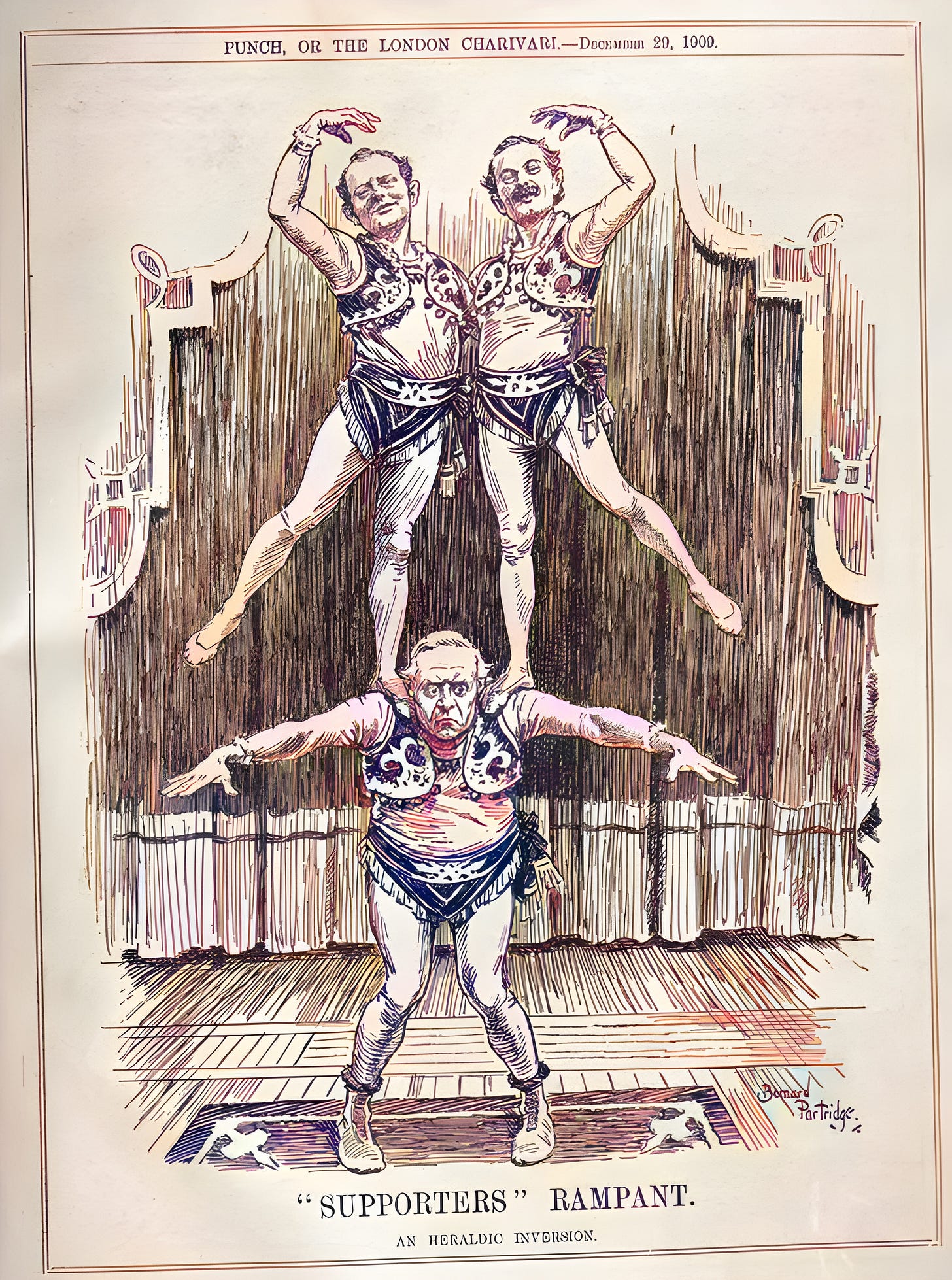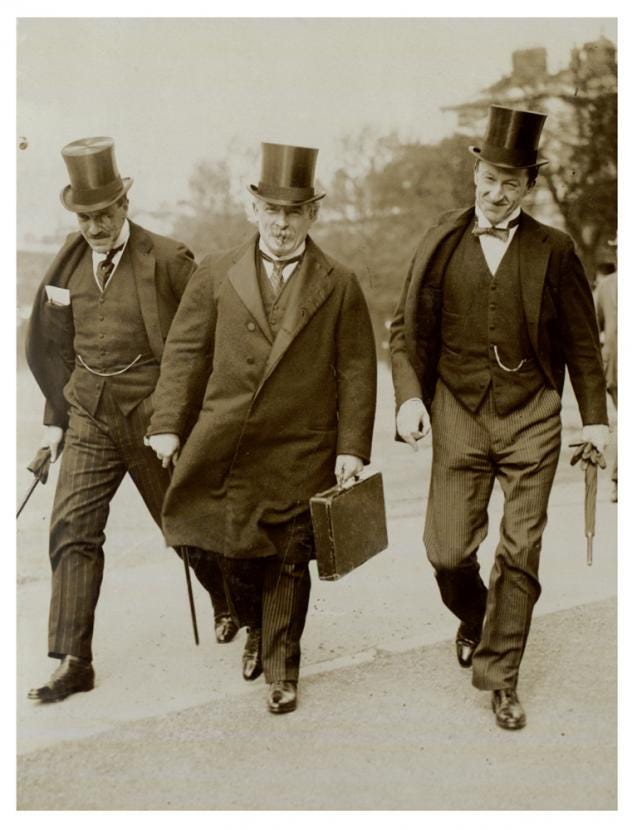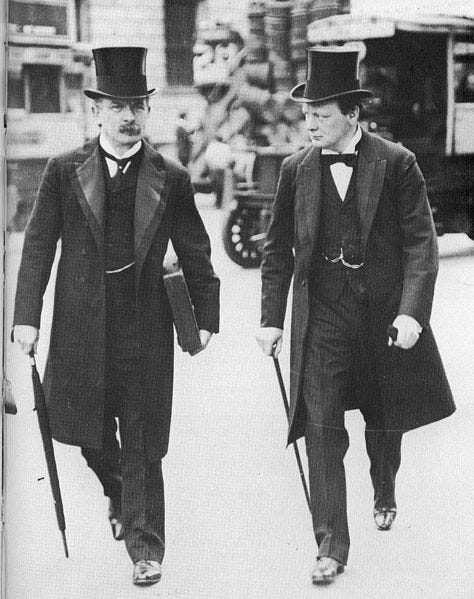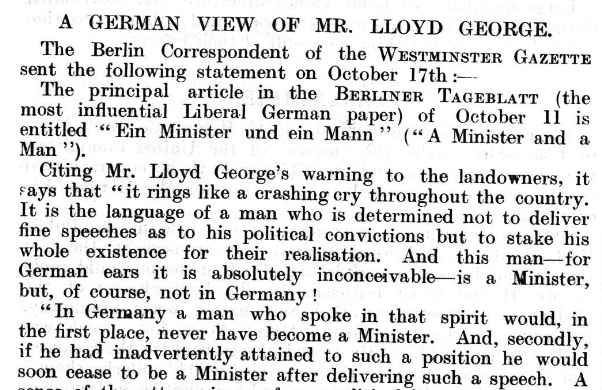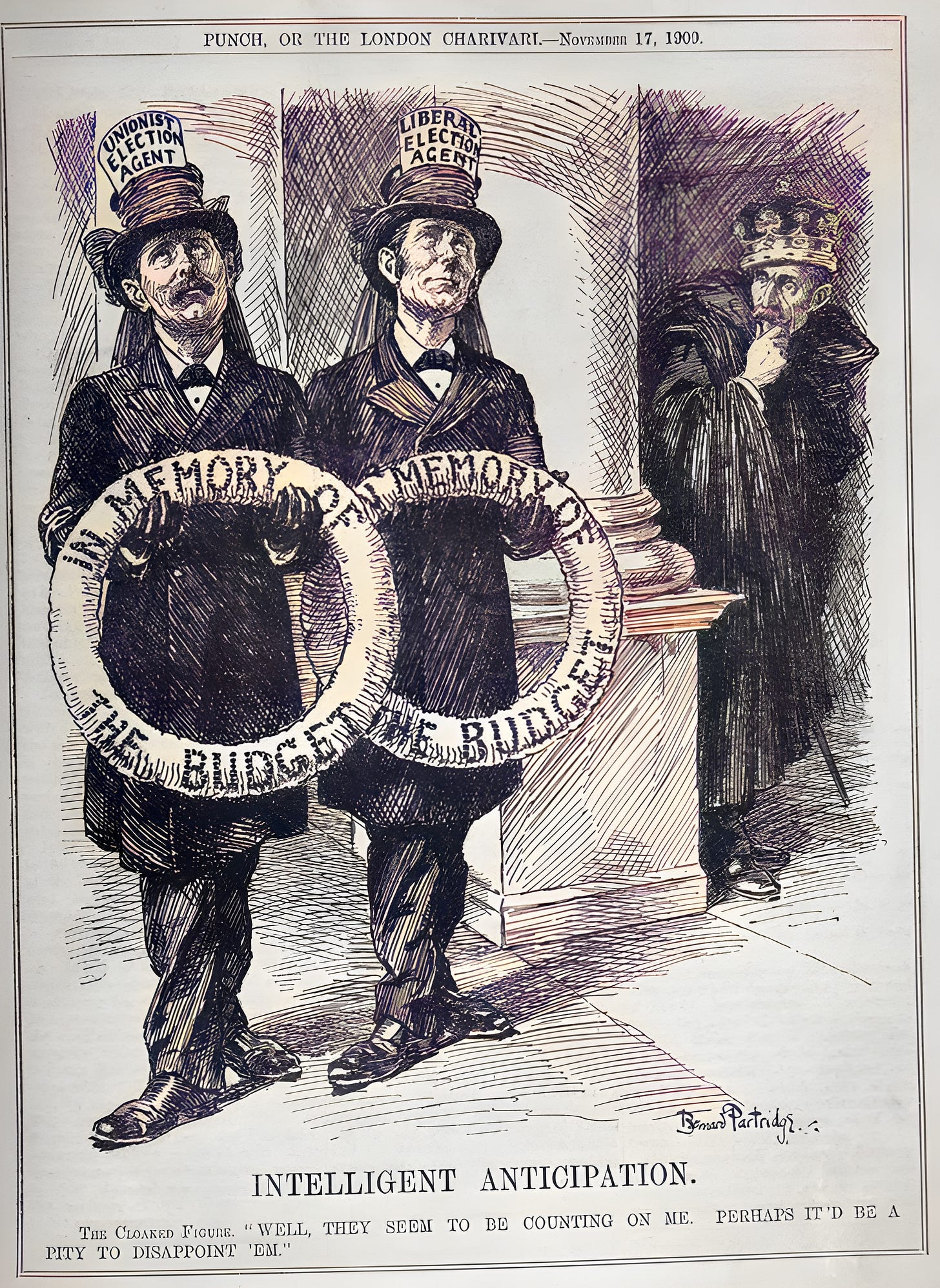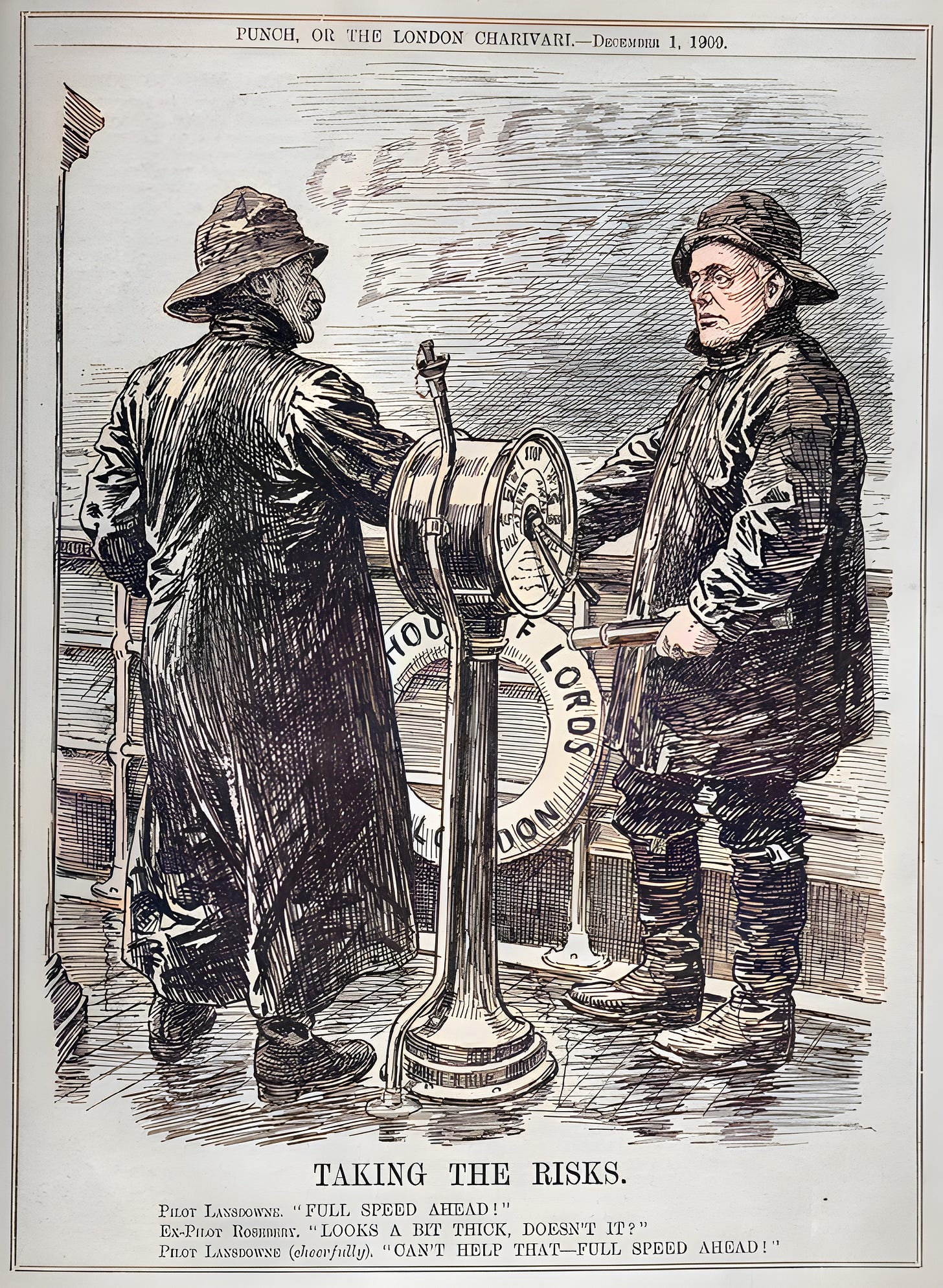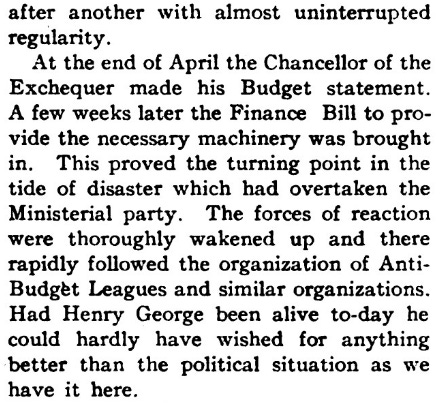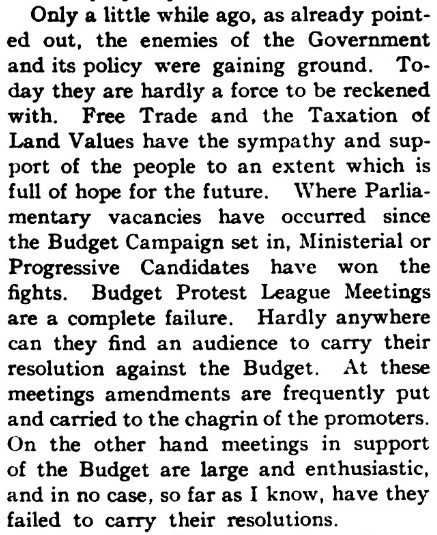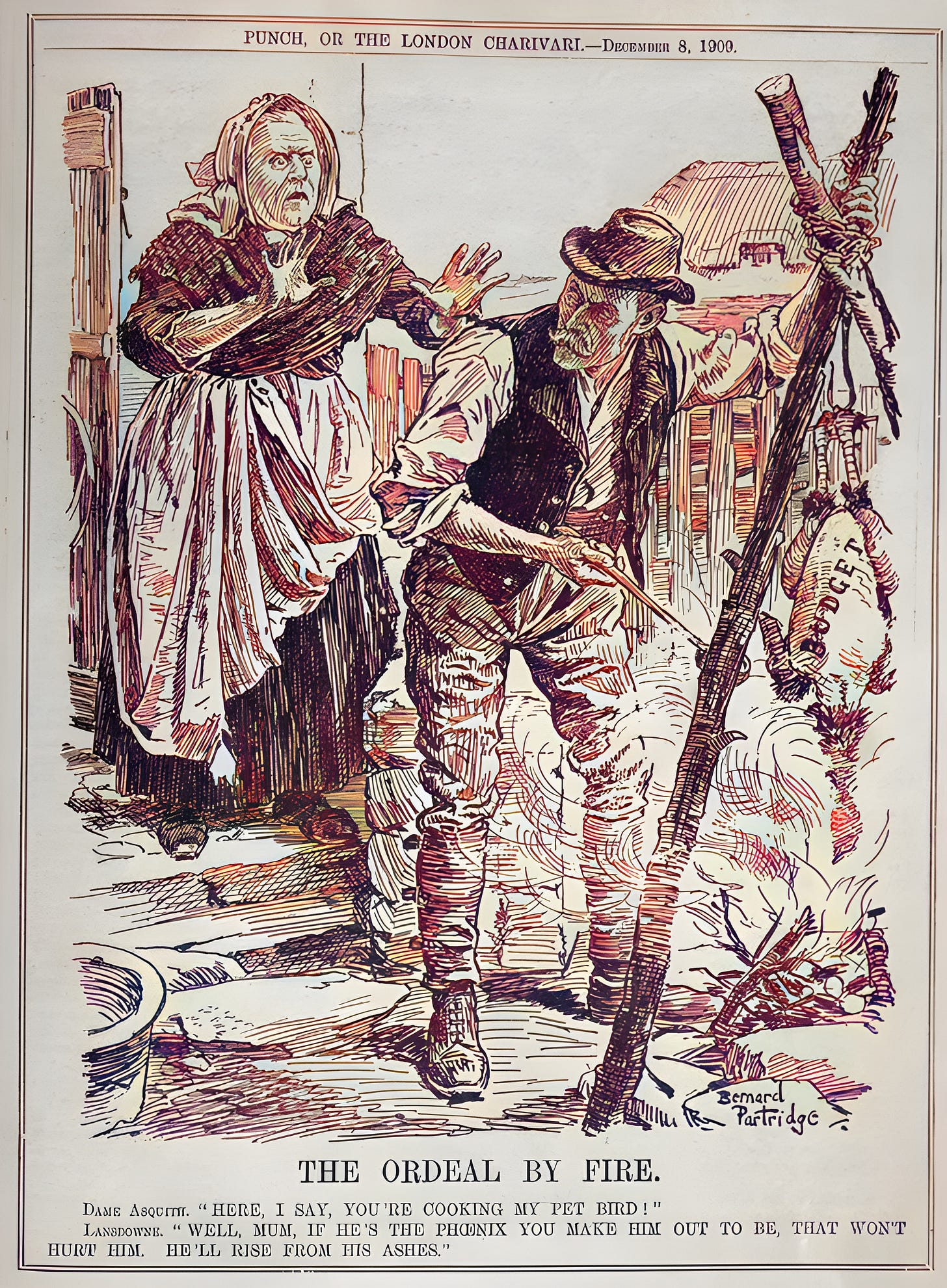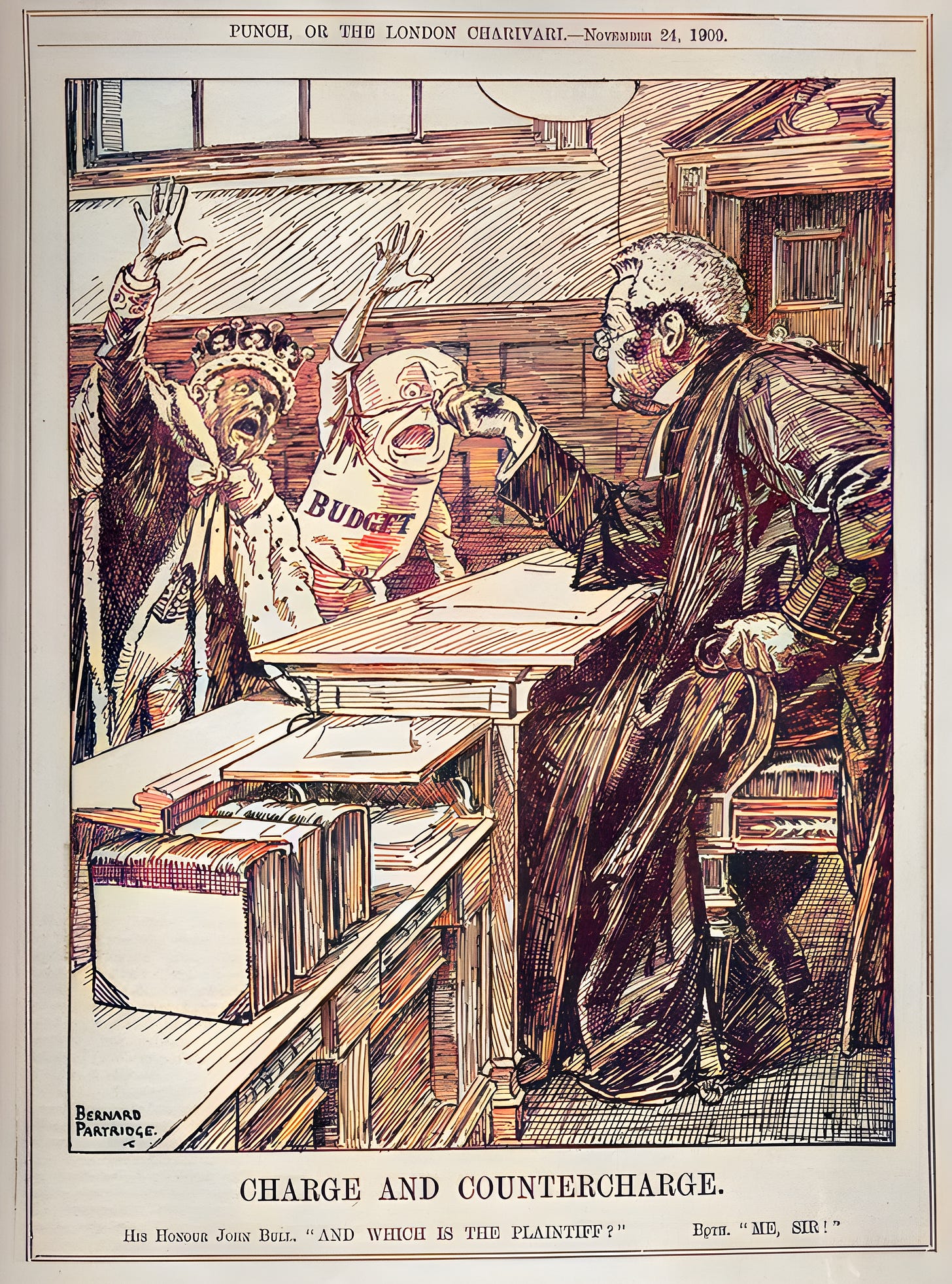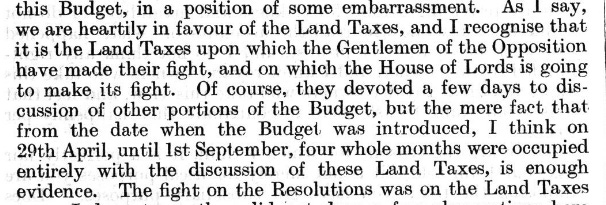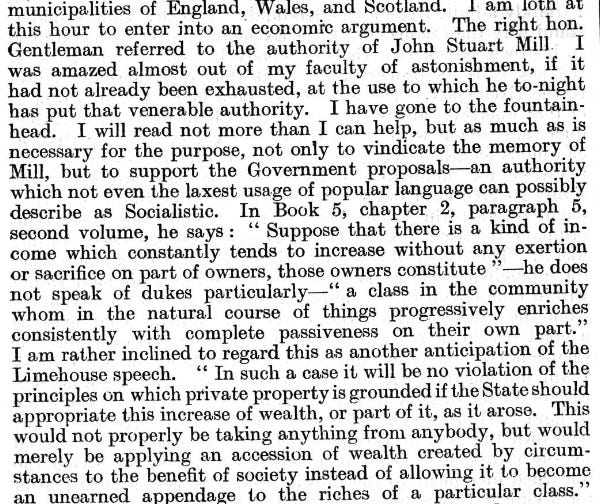The Single Tax v World War One (4) November-December 1909
“fraught with rare and refreshing fruit"
“In this fight David had the support of Winston in the Cabinet, for Winston had appointed himself David’s chief second, bottle-holder and male-nurse. Never before in the history of Parliament had such devotion been witnessed.”
- The Man David, An imaginative presentation based on fact, of the life of David Lloyd George from 1880 to 1914 by Jack Jones (1944)
David Lloyd George:
“The question will be asked:
Should 500 men, ordinary men chosen accidentally from among the unemployed, override the judgment - the deliberate judgment - of millions of people who are engaged in the industry which makes the wealth of the country?
That is one question.
Another will be, who ordained that a few should have the land of Britain as a perquisite; who made 10,000 people owners of the soil, and the rest of us trespassers in the land of our birth...?”
- Newcastle-upon-Tyne, 9th October 1909
“Mr Lloyd George is an entirely new phenomenon as the Chancellor.”
“He has surprised men by his impeachment of landlordism.”
“In a new way his Newcastle speech smote its supporters”
Single Tax Millennium
Newcastle: “a fully-equipped duke costs as much to keep up as two Dreadnoughts”
“One especially expensive duke …”
“to the very root”
“There is nothing like compelling a man to look at both sides of a question”
“black retinue of exaction”
“Let them realise what they are doing. They are forcing revolution.”
“If they begin, issues will be raised that they little dream of”
“The answers are charged with peril for the order of things the Peers represent, but
they are fraught with rare and refreshing fruit …”
“the great quarrel”
“the House of Lords would become the main source and origin of political power”
Lord Loreburn:
David Lloyd George and Winston Churchill
“His other main supporter in the Cabinet was Winston Churchill. He spoke at a large number of public meetings of the pressure group he formed, the Budget League. Churchill rarely missed a debate on the issue and one newspaper report suggested that he had attended one late night debate in the House of Commons in his pajamas. Some historians have claimed that both men were using the measure to further their political careers.”
Robert Lloyd George, author of David & Winston: How a Friendship Changed History (2005) has argued that their main motive was to prevent socialism in Britain:
"Churchill and Lloyd George intuitively saw the real danger of socialism in the global situation of that time, when economic classes were so divided. In other European countries, revolution would indeed sweep away monarchs and landlords within the next ten years.”
Lloyd George’s convictions: staking “his whole existence for their realisation”
William Lloyd Garrison, Single Taxer
“The greatest provision of all for unemployment is in the land clauses”
“No class of the community will have reason to feel greater joy …”
The parallel at the heart of Georgism:
Land Values: “private property in land is necessarily a denial of private property in the things taken from land by the joint effort of labour and capital”
“Gaining ground”: from a1909 article by Mr Fred Skirrow, Single Taxer.
“by production or by plunder?”
As if “unemployment has nothing to do with with the relation of land to labour”
Counter-revolution: the Lords assault the Constitution
“The country has risen in revolt against the land monopoly.”
“the greatest monopoly by far”
“… if we allow an improper, unscientific, and unjust law to continue”
The third reading of the Budget Bill in the House of Commons
Georgeism: “a delusion begotten by verbosity out of ignorance.”
Hilaire Belloc: taxation of the unearned increment is standard classical economics
The Lord Advocate (Mr Ure): “peculiarly”
Mr John Redmond:
“It is on the Land Taxes to-day that the campaign is going on in the country”
The Chancellor of the Exchequer Mr Lloyd George:
“Take the testimony of New Zealand.”
Lord Robert Cecil replied:
“these novel propositions … the shaking that such proceedings give”
“it has made people think, and think rather furiously”
“We have always known that what is at the bottom of all our social troubles.”
“This is the most important question we have got to settle in England.”
“one tax and one tax only, and that tax was to swallow up all others”
Mr A. J. Balfour:
“He always gives concrete instances, but by some amazing coincidence the concrete instance is always a duke.”
The Prime Minister Mr Asquith:
The Budget, with the land clauses, is finally approved by the House of Commons.
The Bill was passed up to the House of Lords. The Lords rejected it on 30 November 1909, by 350 votes to 75. This forced an immediate General Election, to be held in January 1910.
As shown above, the land clauses alone caused this crisis. But it wasn’t the clauses themselves, it was Single Tax philosophy the Lords would not give acceptance to. It could not be conceded that land is a special form of property. In the Nineteenth Century it was decided that humans were a special form of property and slavery was abolished.
Philosphically, the absolute priority of individual self-ownership was irresistible.
Henry George pointed out that self ownership is impossible without land. David Lloyd George took the principle to the heart of government. But the Lords decided that the Twentieth Century would not witness the extension of that principle to land monopoly and to the re-imagining of government and society.



